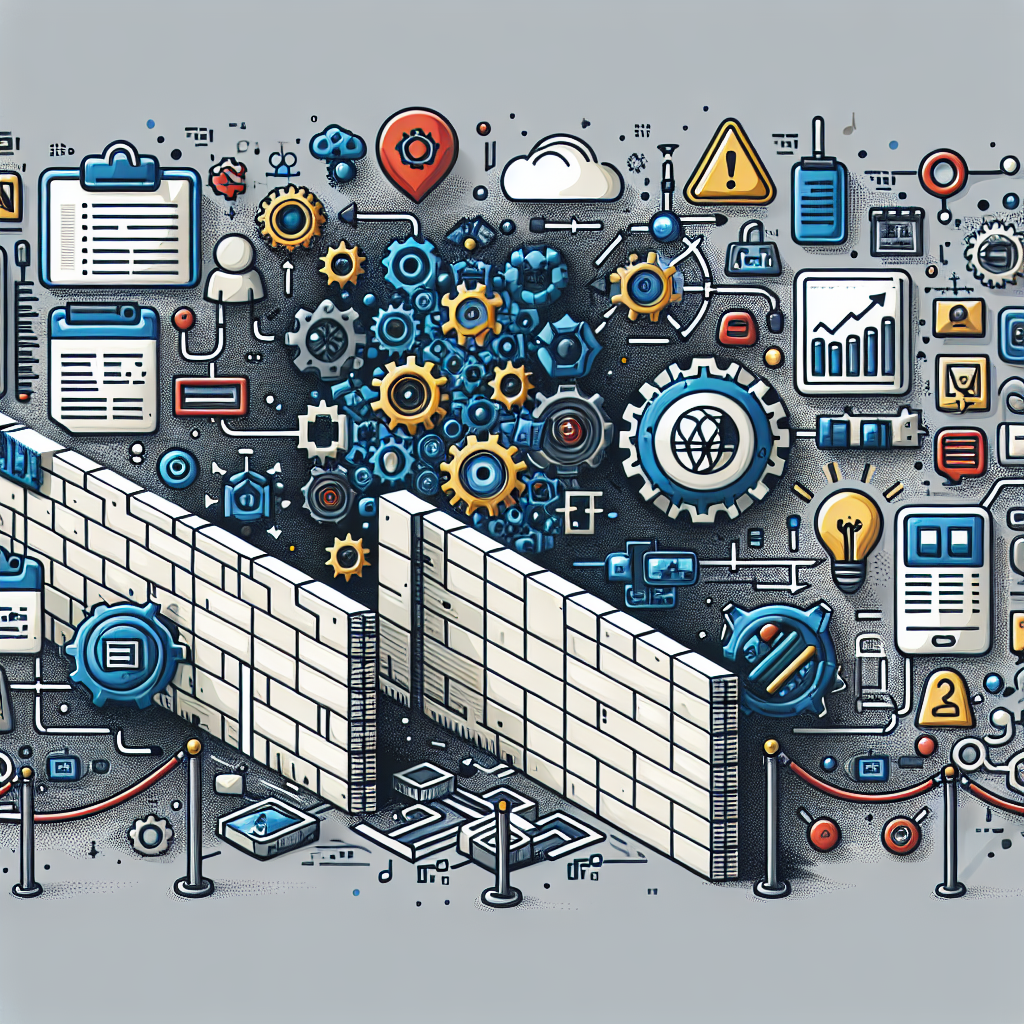AI project management is a rapidly growing field that promises to revolutionize the way projects are planned, executed, and monitored. However, despite the numerous benefits that AI can bring to project management, there are significant barriers to adoption that organizations must overcome in order to fully harness the power of this technology.
In this article, we will explore some of the key challenges that organizations face when adopting AI project management tools and strategies, and provide some insights into how these barriers can be overcome. We will also address some common questions and concerns that organizations may have about implementing AI in their project management processes.
Challenges in Adopting AI Project Management
One of the biggest challenges in adopting AI project management tools is the lack of understanding and awareness among project managers and team members. Many organizations are still unfamiliar with the capabilities of AI and how it can be applied to project management. This lack of knowledge can lead to resistance to change and reluctance to adopt new technologies.
Another challenge is the cost of implementing AI project management tools. While the initial investment in AI technology may be significant, the long-term benefits can far outweigh the costs. Organizations must be willing to invest in training and development to ensure that their teams are equipped to effectively use AI tools and integrate them into their project management processes.
In addition, there may be concerns about data privacy and security when using AI project management tools. Organizations must ensure that they are compliant with data protection regulations and that their data is secure when using AI technology. Transparency and accountability are key principles that must be upheld when implementing AI in project management.
Overcoming the Adoption Barrier
Despite the challenges, there are several strategies that organizations can employ to overcome the adoption barrier and successfully implement AI project management tools. One of the first steps is to educate project managers and team members about the benefits of AI and how it can improve project outcomes. Organizations can provide training and resources to help their teams understand how AI can be integrated into their project management processes.
Another key strategy is to start small and pilot AI project management tools on a smaller scale before rolling them out across the organization. This approach allows teams to test the technology, identify any issues or challenges, and make adjustments as needed. By starting small, organizations can build confidence in AI and demonstrate its value to project stakeholders.
Collaboration is another important factor in overcoming the adoption barrier. Project managers, team members, and IT professionals must work together to identify the most appropriate AI tools for their projects and ensure that they are effectively integrated into existing processes. Communication and collaboration are essential for successful implementation of AI project management tools.
Finally, organizations must be willing to be flexible and adapt their processes to accommodate AI technology. Project management is a dynamic field that is constantly evolving, and organizations must be open to change in order to stay competitive. By embracing innovation and leveraging the power of AI, organizations can drive greater efficiencies and achieve better project outcomes.
FAQs about AI Project Management
Q: What are some common AI project management tools that organizations can use?
A: There are a variety of AI project management tools available on the market, including tools for task automation, predictive analytics, and resource optimization. Some popular tools include Trello, Asana, and Microsoft Project, which offer AI capabilities to help streamline project workflows and improve decision-making.
Q: How can AI improve project outcomes?
A: AI can improve project outcomes by providing real-time insights and predictive analytics that enable project managers to make more informed decisions. AI can also automate repetitive tasks, such as scheduling and resource allocation, freeing up time for project managers to focus on more strategic activities. Overall, AI can help organizations deliver projects faster, more efficiently, and with greater accuracy.
Q: What are some potential risks of using AI in project management?
A: Some potential risks of using AI in project management include data privacy and security concerns, as well as the risk of bias in AI algorithms. Organizations must ensure that their data is secure and compliant with regulations when using AI technology, and they must be vigilant in monitoring and addressing any biases that may arise in AI algorithms.
Q: How can organizations ensure that their teams are prepared to use AI project management tools?
A: Organizations can ensure that their teams are prepared to use AI project management tools by providing training and resources to help them understand the capabilities of AI and how it can be applied to project management. Organizations can also encourage collaboration and communication among project managers, team members, and IT professionals to ensure that everyone is aligned and working towards a common goal.
In conclusion, AI project management has the potential to revolutionize the way projects are planned, executed, and monitored. While there are challenges to adoption, organizations can overcome these barriers by educating their teams, starting small, collaborating effectively, and embracing change. By leveraging the power of AI, organizations can drive greater efficiencies, improve project outcomes, and stay ahead of the competition in an increasingly fast-paced and complex business environment.

